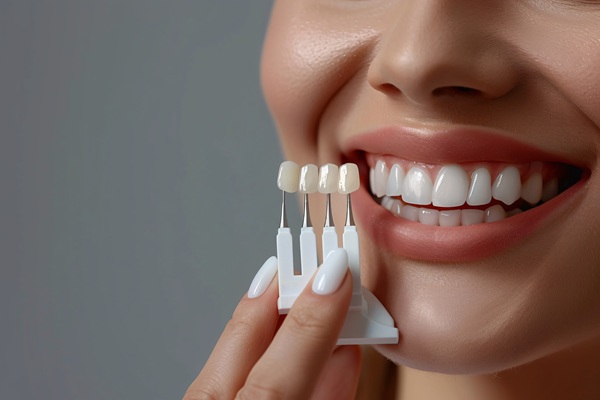General Dentistry: A Dentist Explains Why Fluoride is Important for the Health of Teeth

In general dentistry, fluoride treatments are common. Fluoride is a mineral found in bones and teeth, as well as water, plants, soil, rocks, and air. When used by dentists, fluoride strengthens tooth enamel. Therefore, dentists generally use fluoride as a preventative treatment against cavities. Additionally, fluoride can be found in most public water supplies. In communities where fluoride cannot be added to the water, professionals can add it to milk or salt to help reduce the chance of cavity development.
Why fluoride is a critical part of oral health
Patients who want to take steps to prevent tooth decay have the option of fluoridated toothpaste, mouth rinses, foams, and varnishes. Periodic fluoride treatments can be provided in a general dentistry office. Most patients benefit from a treatment every six to 12 months. However, for those who have a high risk of cavities, more appointments may be preferable.
Fluoride repairs and prevents decay
Dental plaque is a sticky film that may build upon a patient's teeth over time. The plaque builds up due to sugar and starch consumption and poor brushing habits. As bacteria feed on the sugar, plaque forms. If the plaque remains on the teeth, it hardens into tartar and shields the bacteria. In addition, the acid within the plaque removes the minerals in the other enamel and can develop into cavities.
Fluoride protects the teeth from bacteria. Tooth enamel is less vulnerable to acid when treated with fluoride. Additionally, in the early stages of decay, fluoride can repair tooth decay. It brings calcium and phosphate ions together and speeds up the formation of a new surface.
Fluoride benefits people of all ages
All people are prone to tooth decay. However, some younger children may be more vulnerable because they rely on their parents to maintain their developing teeth. Additionally, children have weaker teeth, and to establish a long life of good oral health habits, the habits should be introduced early on. Fluoride exposure protects a child's teeth from decay and protects the development of permanent teeth.
In adulthood, fluoride continues to protect a patient's teeth. Fluoride supplements and other treatments can benefit adults for patients with gum disease, dry mouth, or frequent cavities. When fluoride interacts with the teeth, it forms a material called fluorapatite.
Fluoride is not dangerous
Fluoride has enough research behind it for the dental community to trust it. For 70 years, fluoridation has proved safe and effective. Fortifying food or water with fluoride is safe and no different than fortifying other foods and beverages with vitamins and nutrients. Patients could find fluoride naturally in oceans and groundwater, so adding it to the water supply is harmless and beneficial to those who consume it.
Conclusion
Children and adults of all ages can benefit from the use of fluoride treatments. Fluoride is a naturally occurring mineral that may strengthen enamel and reduce the risk of cavities. Fluoride treatments come in a variety of options. For example, patients may choose to have a foam or gel applied to their teeth or choose a toothpaste with fluoride added from a general dentistry office.
Request an appointment here: https://dicksonfamilydental.com or call Dental Partners Dickson at (615) 931-4088 for an appointment in our Dickson office.
Check out what others are saying about our dental services on Yelp: General Dentistry in Dickson, TN.
Related Posts
A general dentist helps patients prevent oral health concerns before they become problems. A dental checkup is the key way they achieve this. However, there are other preventive dental services that general dentists offer to boost oral health for patients of all ages.Preventive dental services focus on maintaining oral health and avoiding the development of…
Teeth whitening treatments can help you achieve the bright smile you have always wanted. Dentists have two main options they offer patients regarding whitening their teeth: professional teeth whitening and at-home whitening kits. Professional teeth bleaching treatments can be broken down into conventional and laser whitening treatments.These two teeth-whitening alternatives use peroxide-based chemicals as bleaching…
Considering dental crowns? Read on to learn more about this restoration option. Dental crowns can address a number of issues, ranging from cavity treatment to stain coverage. However, despite being a common and successful treatment, there are a few factors to consider ahead of time.Below is a quick rundown of what to know before getting…
The popularity of dental implants is on the rise, and for good reason. They are known as the closest tooth replacement option to natural teeth. In this way, they not only restore the natural appearance of a person's smile but also restore its original function.Though dental implants offer many exciting benefits, they may not be…


